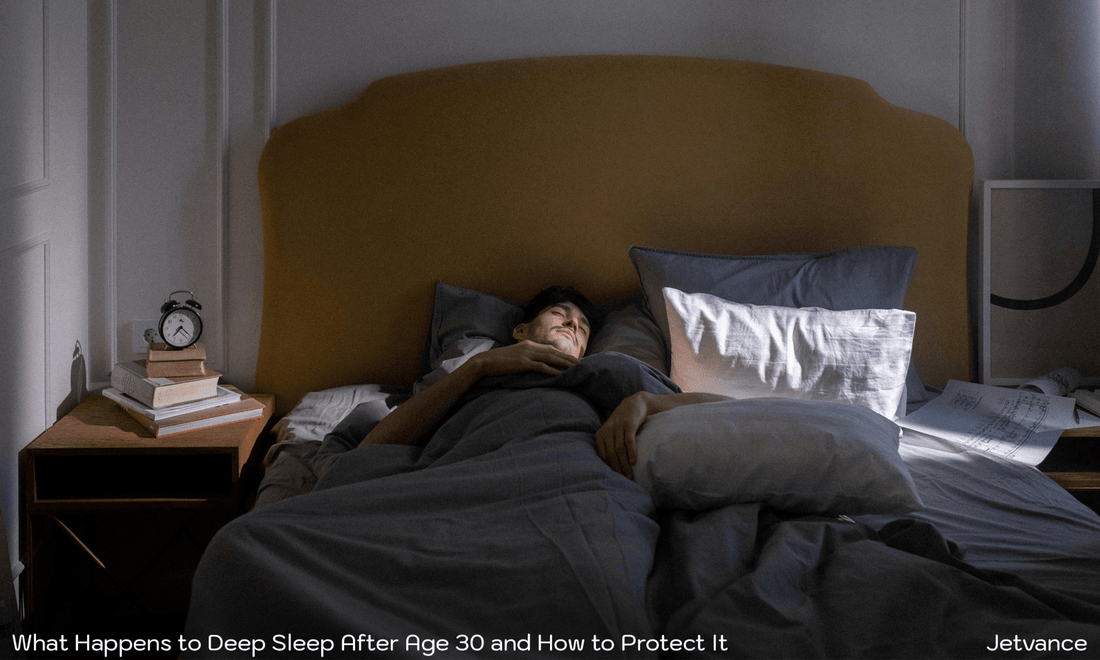
What Happens to Deep Sleep After Age 30 and How to Protect It
Share
As people reach their 30s and 40s, many report waking up feeling less rested, even if they’re technically getting seven to eight hours of sleep. One major reason is the decline in slow-wave sleep, or deep sleep, which is essential for physical recovery and memory consolidation.
This stage of sleep is especially sensitive to lifestyle habits. Alcohol, late meals, sedentary days, and inconsistent bedtimes can all shorten the duration and depth of deep sleep. Aging naturally reduces this stage, but external factors can make it worse. Fortunately, there are science-backed methods to restore it.
Regular physical activity particularly resistance training has been shown to improve deep sleep quality. Limiting alcohol and maintaining a consistent sleep schedule also helps, as does limiting screen exposure in the evening. While you can’t fully reverse age-related sleep changes, building a structured daily routine and prioritizing sleep hygiene can slow the decline and protect your body’s most restorative processes.

